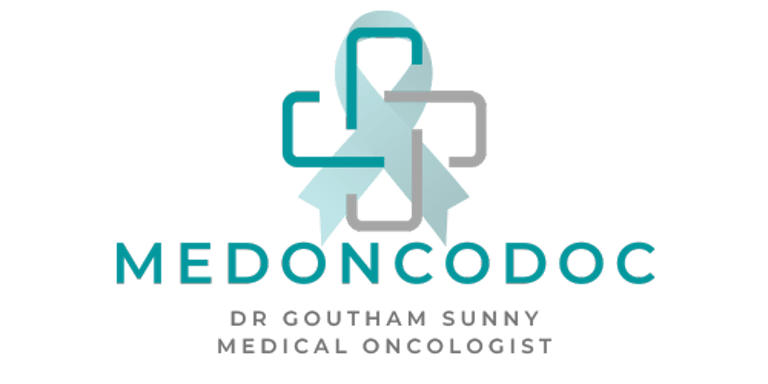Services
Health education
I conduct community programs and awareness talks on cancer prevention, early signs, and screenings, collaborating with NGOs and health authorities for events like cancer camps. In consultations, I provide clear education using visual aids to help patients understand their diagnosis and treatment. My goal is to empower individuals to take charge of their health for better outcomes. If your community group needs a cancer awareness session, I’m happy to help.
Cancer prevention
I focus on cancer prevention by offering risk assessments, lifestyle counseling, and guidance on chemoprevention for high-risk individuals. I advocate for vaccinations like HPV and Hepatitis B to prevent certain cancers, and promote healthy habits such as good nutrition, regular exercise, and avoiding tobacco and alcohol. I keep patients updated on new prevention guidelines and strive to empower them to make choices that lower their cancer risk. My aim is to help people prevent cancer before it develops.
Cancer screening
I provide guidance on and access to cancer screening programs tailored to each person's age, gender, and risk factors—covering breast, cervical, colorectal, prostate, oral, and lung cancers. I educate about the benefits and processes of screenings, encourage participation in screening camps, and help address fears around testing. If abnormal results arise, I support patients through follow-up steps and further evaluation. My goal is to promote early cancer detection for simpler treatment and better outcomes.
Diagnosis
My diagnostic service prioritizes prompt, accurate evaluation for anyone with symptoms or suspicious test results. I begin with a detailed consultation, medical history, and physical exam to guide further investigations. Depending on your case, I arrange targeted imaging (like ultrasound, CT, MRI, or PET scans) and laboratory tests, collaborating closely with trusted radiologists and pathologists. If cancer is suspected, I explain and organize the appropriate biopsy, ensuring patient comfort and timely results. I stay updated on every test, review findings personally, and communicate transparently throughout. If cancer is confirmed, I coordinate comprehensive staging work-ups to assess disease extent and tailor the treatment plan. My approach combines advanced technology with warmth and empathy, so you always feel informed, supported, and never alone during this critical phase.
Treatment
Once cancer is diagnosed, I design a personalized treatment plan tailored to your specific cancer type, stage, and individual needs. As a medical oncologist, I specialize in systemic therapies such as chemotherapy, targeted therapy, immunotherapy, and hormonal therapy—explaining each option, its goals, and managing any side effects you may experience. I coordinate seamlessly with surgical and radiation oncologists to ensure comprehensive, team-based care, and offer clinical trial options when appropriate. Throughout treatment, I closely monitor your progress and provide holistic support—including nutritional, rehabilitative, and emotional care. My commitment is to guide and stand by you at every step, striving for the best outcomes while maintaining your quality of life.
Follow up
After completing cancer treatment, I offer personalized follow-up care with regular check-ups, surveillance tests, and management of long-term side effects. Emotional and psychosocial support is integral, connecting survivors to counseling and support groups. Together, we focus on maintaining a healthy lifestyle and monitoring for recurrence. Whether cancer-free or living with chronic disease, I remain your dedicated healthcare partner to support your long-term wellbeing.
Palliative Care
Our palliative care services focus on improving quality of life for patients with serious or life-limiting illnesses by managing pain and physical symptoms while addressing emotional, psychological, and spiritual needs. We provide compassionate, personalized support throughout all stages of illness—new diagnosis, treatment, or advanced disease. Emphasizing comfort, dignity, and holistic wellbeing, palliative care helps patients and families navigate difficult decisions, cope with anxiety, and access essential resources. Integrated with curative treatments, it ensures a seamless, supportive care experience that eases suffering and promotes emotional strength.
Services
In this section, I outline the services and support that I offer as part of my professional practice. Cancer care is not a single event but a continuum – from prevention and early detection to treatment and follow-up. Below are the key service areas, each crucial in the journey towards better health:
Preventive services
Prevention is better than cure” is especially true for cancer. I emphasize preventive oncology—helping people take proactive steps to reduce their cancer risk. This includes risk assessments and counseling, especially for those with a family history or lifestyle risk factors like smoking, poor diet, or excessive sun exposure.
I guide patients on chemoprevention (using certain medicines in high-risk individuals) and strongly advocate vaccinations such as HPV and Hepatitis B, which help prevent cervical and liver cancers. I also counsel on healthy lifestyle choices—balanced nutrition, regular physical activity, limiting alcohol, quitting tobacco, and reducing exposure to carcinogens.
Through this website and in my practice, I regularly share updates on evolving cancer prevention guidelines—like aspirin for colon cancer or sun safety tips. My goal is to help people stay informed, make healthy choices, and prevent cancer before it starts
Health Education
Health education is at the heart of what I do. I conduct community programs and awareness talks to spread knowledge about cancer. This includes seminars in schools, workplaces, and public forums on cancer prevention, recognizing early signs, and the importance of screenings. I often collaborate with NGOs and health authorities to organize awareness events like cancer camps on World Cancer Day or No Tobacco Day. Through simple presentations and interactive Q&A sessions, I help people understand how lifestyle choices affect cancer risk and why timely check-ups matter.
On a more personal level, every consultation with me is a mini-education session. I explain the diagnosis and treatment using pamphlets, diagrams, or videos—ensuring you leave with a clear understanding. I believe informed patients take ownership of their health, improving both compliance and outcomes. If your community group would benefit from a talk on cancer, feel free to reach out—I’m always eager to educate and empower.
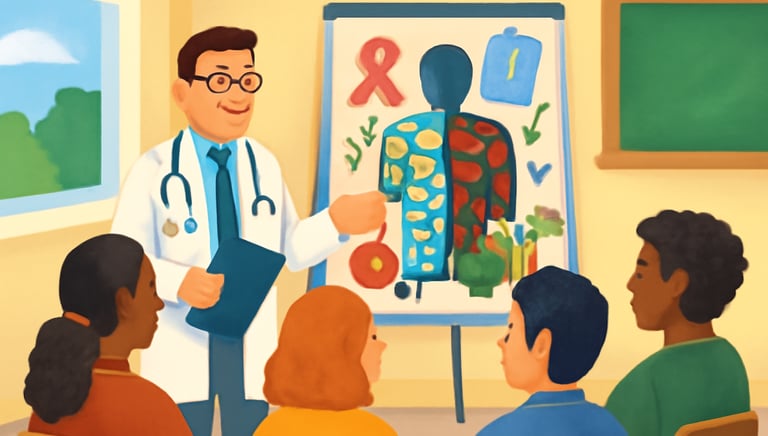

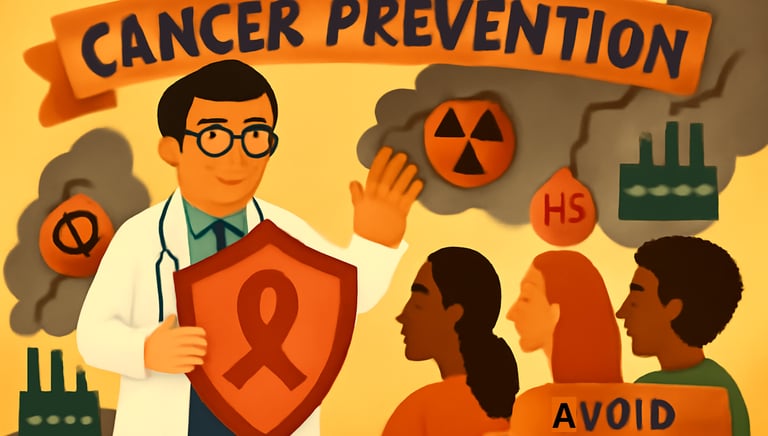

Cancer Screening
Screening saves lives by catching cancer early, often before any symptoms appear. I provide guidance on and facilitate access to cancer screening programs. Depending on your age, gender, and risk factors, I will recommend appropriate screening tests, such as:
Breast Cancer Screening: Regular mammograms (breast X-rays) for women above a certain age or those at high risk. I counsel on when to start and how frequently to do mammography, and I also teach and encourage breast self-examination techniques for women to practice monthly at home.
Cervical Cancer Screening: Pap smears and HPV testing for women, typically starting from their early 20s or as advised by guidelines. If you’re a woman who has been skipping these tests, I urge you to get back on track – it can detect precancerous changes long before cervical cancer develops.
Colorectal Cancer Screening: Methods like colonoscopy, stool tests (FIT/FOBT), or sigmoidoscopy for men and women over 50 (younger if risk factors exist). I explain these options and help coordinate the appropriate test. Colonoscopy, for instance, can not only detect early cancer but also remove polyps (potentially pre-cancerous growths) in the same procedure.
Prostate Cancer Screening: Discussion about PSA blood test and digital rectal exam for men over 50 or earlier if at high risk. Prostate screening is individualized – I help patients weigh the pros and cons and make an informed choice.
Oral and Lung Cancer Screening: For people with significant smoking or tobacco history, I advise on screening like periodic oral examinations (especially in India where oral cancer is common) and low-dose CT scans for the lungs if criteria are met.
I actively partake in screening camps organized by GCRI or public health bodies – these camps offer free or low-cost screenings for breast, cervical, oral, and other cancers. If there’s an upcoming screening camp or special drive (say, during Breast Cancer Awareness Month), I will announce it on the News section or social media so you can take advantage.
Screening can be scary for some – the fear of a positive result often holds people back. I understand that fear, and I assure you that knowing your health status is far better than uncertainty. If a screening test comes back abnormal, it does NOT always mean cancer – but it gives us a chance to investigate further and treat early if needed. I will be there to guide you through the follow-up, whether it means further tests like a biopsy or just repeat screening after some time.
Early detection through screening often means simpler treatment and much higher chances of cure. By being proactive with recommended screenings, you are taking a powerful step in safeguarding your health.

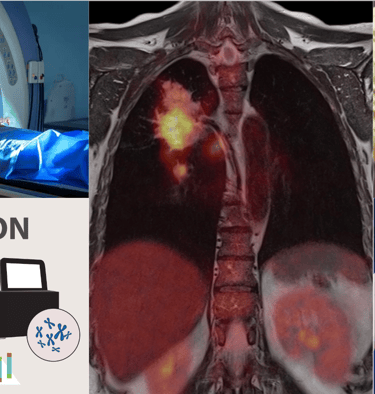
Cancer Diagnosis and Treatment
Providing education on cancer, encouraging screenings, and dispelling myths for patients and the public.
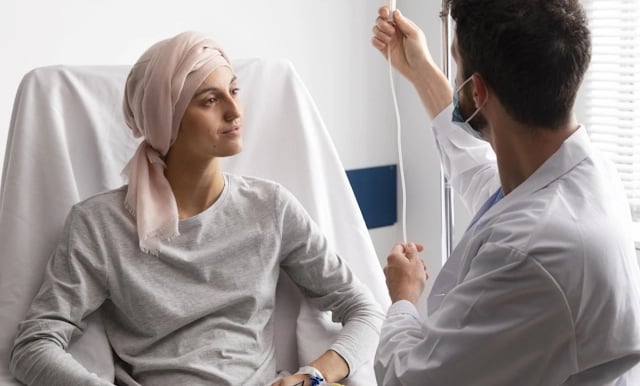

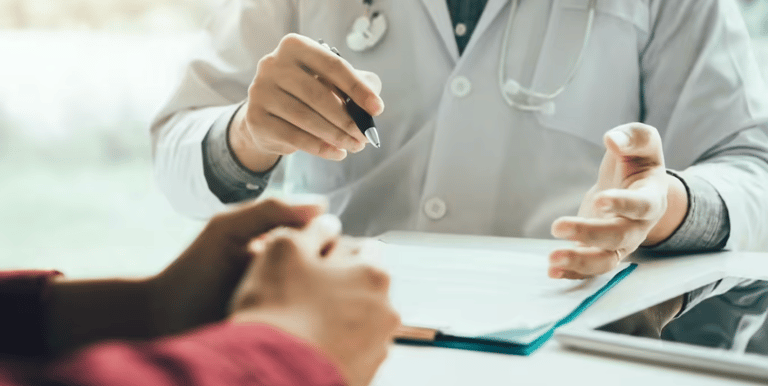

Treatment
Once a diagnosis is confirmed, we move into the treatment phase. As a medical oncologist, I specialize in systemic therapies—treatments that travel through the bloodstream to target cancer cells throughout the body. Here’s what you can expect:
Personalized Treatment Plans: Every cancer and every patient is unique. I create individualized treatment plans based on the cancer’s type, stage, molecular profile, your health, and your preferences. During consultations, I explain the treatment goals—whether curative, disease control, or palliative—and help you understand the benefits and side effects of each option. Decisions are made together, with clarity and comfort.
Chemotherapy: One of my key responsibilities is administering and managing chemotherapy when indicated. It works by targeting rapidly dividing cancer cells and is delivered in planned cycles. I select drug regimens based on established protocols and your case specifics. Side effects like nausea, fatigue, or low blood counts are common but manageable—I provide supportive medications, preventive guidance (like infection control and dietary precautions), and am available for any concerns.
Targeted Therapy & Immunotherapy: Targeted therapy zeroes in on specific mutations or proteins in cancer cells (e.g., EGFR, HER2, ALK), while immunotherapy helps your immune system fight cancer (e.g., drugs like pembrolizumab or nivolumab). If your cancer has actionable targets or is responsive to immunotherapy, we’ll consider integrating these into your treatment. I’ll explain how they work and manage their unique side effects, especially immune-related ones.
Hormonal Therapy: For hormone-driven cancers like breast or prostate cancer, I may recommend hormonal treatments—oral or injectable—that block or reduce hormones. These often have fewer side effects and can be very effective. I’ll guide you through potential hormonal changes and how to manage them.
Multidisciplinary Coordination: Cancer care is rarely the work of one specialist. Many patients benefit from surgery and/or radiation in addition to medical treatment. I work closely with surgical and radiation oncologists at GCRI to ensure integrated care. Whether it’s scheduling chemo after surgery or coordinating concurrent chemo-radiation, I ensure a smooth, team-based approach. Complex cases are reviewed in tumor board meetings so you benefit from collective expert input.
Clinical Trials: GCRI participates in clinical research and offers access to promising new therapies through clinical trials. If you're eligible, I’ll discuss available options, the pros and cons, and ensure full clarity—it’s always your choice. Trials are considered only if they are appropriate and safe for your condition.
Ongoing Monitoring and Support: During treatment, I monitor your response through exams, lab tests, and scans as needed. We assess how well you're tolerating therapy and adjust as necessary. My team and I are here to support not just the medical side, but your overall well-being—nutritional guidance, physiotherapy, and counseling are part of our holistic care approach.
Cancer treatment can be demanding, but you're never alone. My team and I will be with you every step of the way. With ongoing medical advances, I strive to bring the latest, most effective treatments into your care plan. Whether the goal is cure, life extension, or symptom relief, we aim to preserve your quality of life and dignity throughout the journey.
Diagnosis
Accurate diagnosis is the cornerstone of effective cancer treatment. In this service domain, I focus on prompt and precise diagnostic work-ups for patients who have symptoms or test results suggestive of cancer. If you come to me with a concern – for example, a persistent lump, abnormal scan, unexplained weight loss, or worrisome lab result – I will guide the diagnostic process with urgency and care.
Key aspects of the diagnostic services I provide include:
Consultations and Clinical Evaluation: I take a thorough medical history and perform a detailed physical examination. This helps in formulating a differential diagnosis (the list of possible causes for your symptoms) and planning which tests are needed. I pay attention not just to the specific symptom (like a breast lump or chronic cough) but also to your overall health, family history, and risk factors, as these inform the likelihood of various diagnoses.
Imaging and Laboratory Tests: If cancer is suspected, appropriate imaging studies are arranged – this could be an ultrasound, X-ray, CT scan, MRI, PET scan, or mammogram depending on the case. Blood tests and tumor markers might be checked as well. I work closely with radiologists and pathologists to ensure that the correct tests are done and interpreted correctly. At GCRI, we have advanced imaging facilities, and if needed, I coordinate to get you fast-tracked appointments so that we minimize waiting anxiety.
Biopsy and Pathology: The biopsy (taking a small sample of tissue) is often the definitive step to diagnose cancer. I will explain the biopsy procedure to you – whether it’s a needle biopsy of a lump, an endoscopic biopsy (like during a colonoscopy), or a surgical biopsy. Ensuring patient comfort and safety during this process is a priority. Once the sample is obtained, expert pathologists examine it under a microscope to determine if cancer cells are present and identify the type of cancer. In many cases, additional tests (immunohistochemistry or molecular tests) are done on the biopsy tissue to get detailed information about the tumor. I stay in close communication with the pathology team and often personally review the slides or reports to understand the nuances of the diagnosis.
Staging Work-up: If a cancer diagnosis is confirmed, the next step is staging – finding out how advanced the cancer is (has it spread? how large is the tumor? etc.). I coordinate staging investigations, which may include further imaging (like PET-CT scans) or bone marrow tests (for leukemias/lymphomas). Staging is crucial as it guides the treatment plan. Rest assured, I will walk you through all the results and what they mean in plain language.
Throughout the diagnostic journey, communication is key. Waiting for results can be an emotionally draining time. I make it a point to keep my patients and their families informed at each step. As soon as results are in, we schedule an appointment (or a call) to discuss them – I never want you to feel you are in the dark. If the result is benign (not cancer), we’ll all breathe a sigh of relief and talk about next steps or preventive measures. If the result confirms cancer, I will support you emotionally and prepare you with a clear explanation of the cancer type and stage, and immediately pivot to discussing the treatment options (so that you know there is a plan and hope moving forward).
In summary, my diagnostic service is thorough, efficient, and compassionate. I leverage the best of medical technology and expertise, but with a human touch – understanding that behind every test and result, there is a person who needs support and clarity.
Cancer Follow up
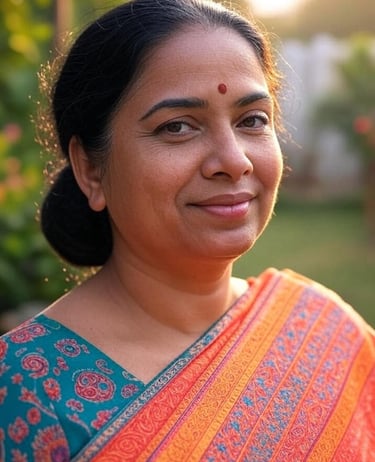

Follow up
Finishing cancer treatment is a major milestone, but follow-up care is just as important. I provide personalized survivorship care focused on regular check-ups, surveillance tests, and managing any long-term side effects. Emotional and psychosocial support is also a key part of healing, and I connect survivors with counseling, support groups, or mentorship opportunities. We’ll work together to maintain a healthy lifestyle, monitor for recurrence, and support your overall wellbeing. Whether you're cancer-free or managing a chronic form, I’ll remain your healthcare partner—committed to helping you live well, long after treatment ends.
Palliative care services
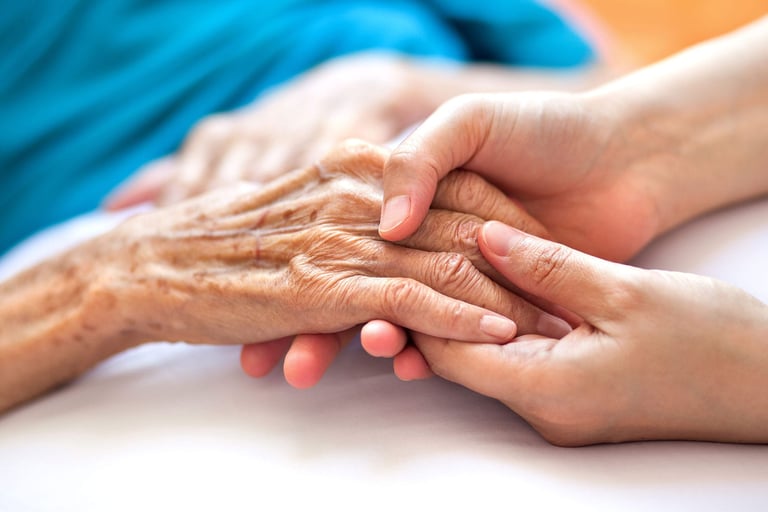

Our palliative care services are dedicated to improving the quality of life for patients facing serious or life-limiting illnesses. Beyond managing pain and physical symptoms, palliative care addresses the emotional, psychological, and spiritual needs of patients and their families. This holistic approach ensures patients receive compassionate, personalized support at every stage of their illness, whether newly diagnosed, undergoing treatment, or in advanced stages.
The importance of palliative care lies in its focus on comfort, dignity, and holistic wellbeing, helping patients maintain the best possible quality of life. It supports not only symptom relief but also helps patients and families navigate complex decisions, cope with anxiety and uncertainty, and access resources. By integrating palliative care alongside curative treatments, we provide a seamless continuum of care that respects individual preferences, eases suffering, and enhances emotional resilience throughout the healthcare journey.
Connect
Raising cancer awareness and encouraging screenings online.
Contact
Follow
© 2025. All rights reserved.
